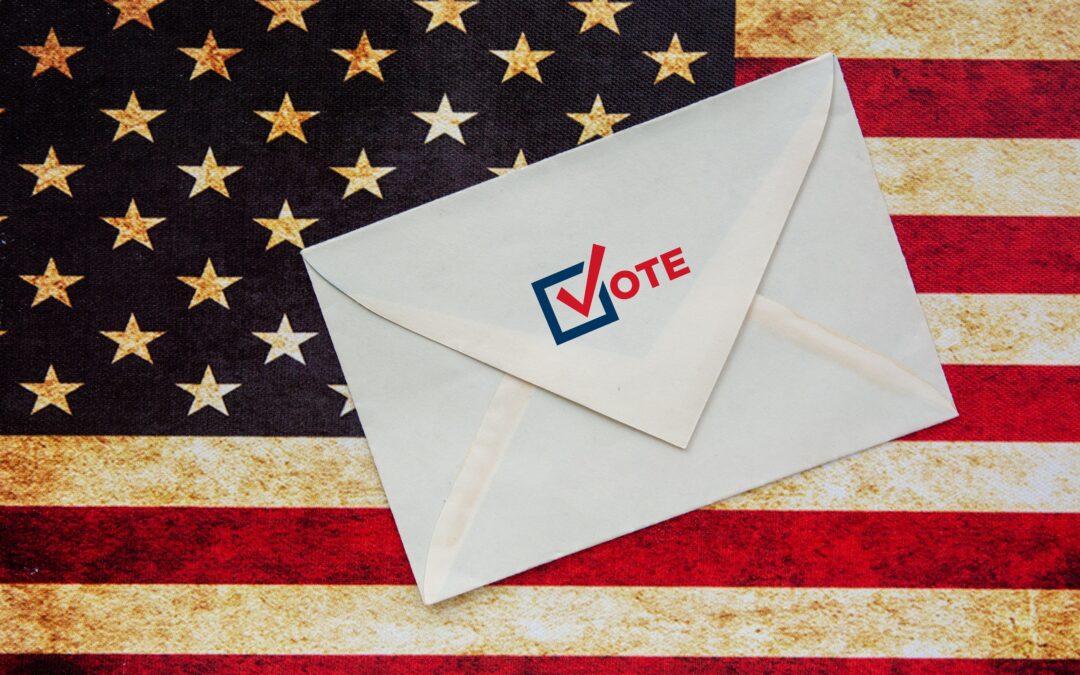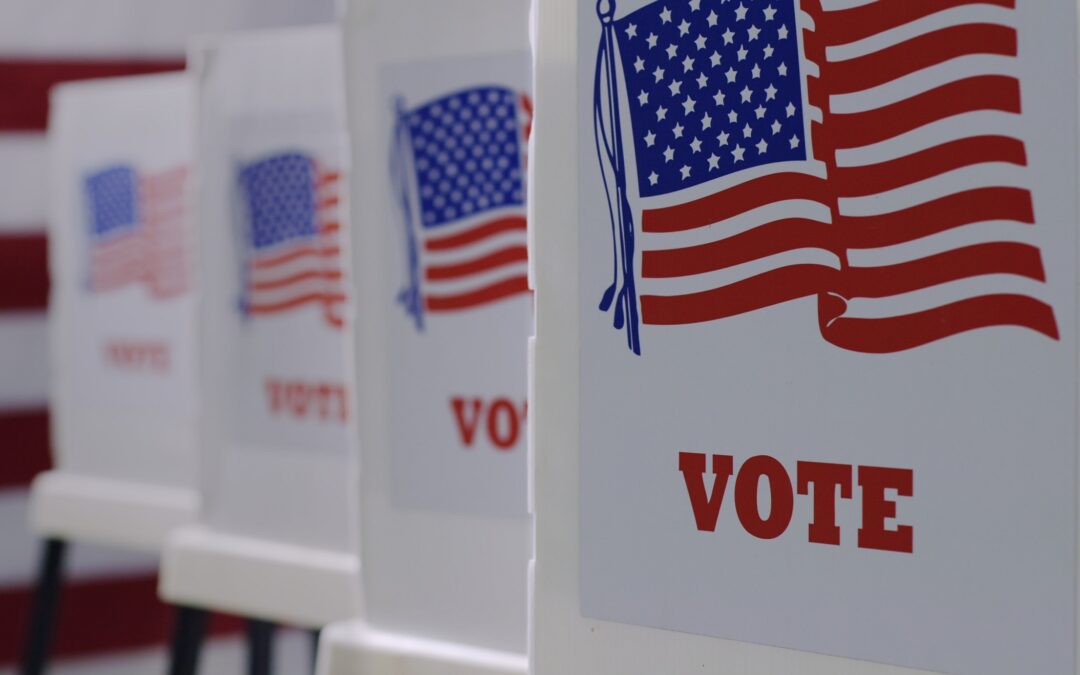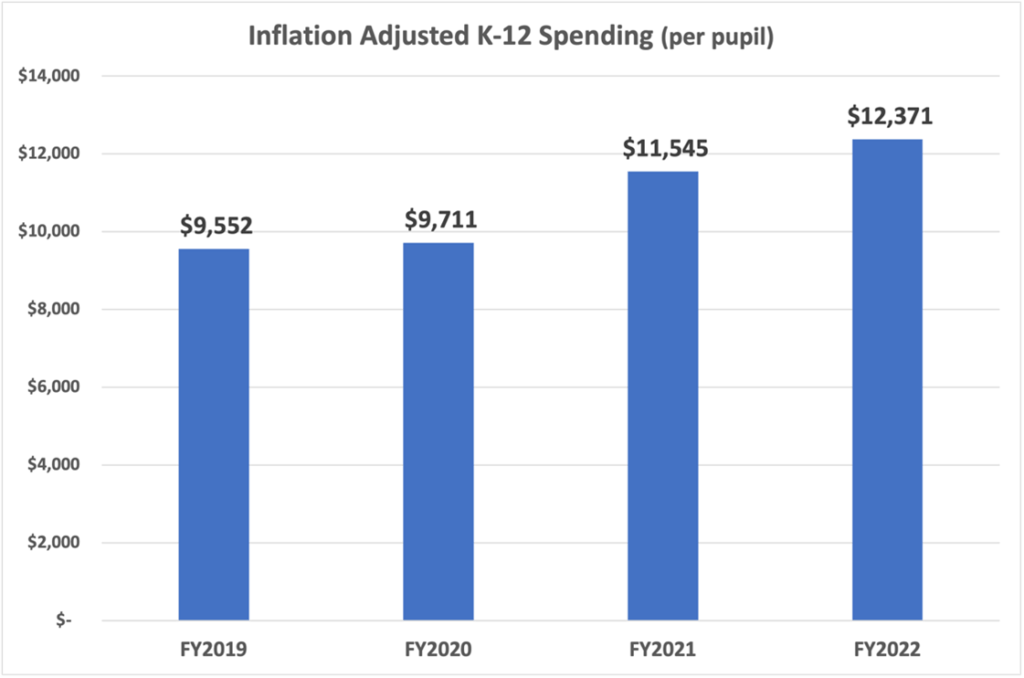
by admin | Sep 30, 2021 | Elections, News and Updates
The much anticipated audit report has finally been released, and it has proven to not be a disappointment for those seeking an in-depth look at election security and potential fraud in Maricopa County.
Unsurprisingly, the establishment media spent little time actually reviewing the 90-page report, instead focusing on the Presidential recount figures showing Biden still winning Maricopa County.
This lazy analysis ignored the more critical aspects of the audit, including the real, substantive findings that identified legitimate issues with our election process and a comprehensive list of election reform recommendations.
The audit recommendations are not based upon wild conspiracies, as the left and corporate media might want you to believe. Instead, they are measured, reasonable, common-sense election integrity policies that will ensure that every legal vote is properly counted. In fact, most of the recommended reforms from the audit are election law changes that the Free Enterprise Club has been urging lawmakers to adopt for years. We knew these were critical before—the audit findings confirm and show the necessity of them.
So, what are the most critical election integrity reforms recommended by the audit?
In-Person Voters Moved Prior to Registration Deadline
Among the most concerning findings is that potentially 2,382 voters moved out of Maricopa County prior to the registration deadline yet they still cast a ballot in-person. The audit team relied on data provided by Maricopa County and compared it with best-in-class commercial data to find individuals who moved before the election but appear on the voted list provided by the county.
Because the data indicating voters moved is third-party, commercial data, this might not be perfectly accurate. That’s why further investigation by the Attorney General is warranted. But it is important to highlight that this is in-person voting, not vote by mail. All systems have vulnerabilities and front-end security is most effective in limiting fraudulent and illegal voting.
Recommendation: Voter Roll Maintenance
To that end, the audit team recommended changes to laws regulating voter registration maintenance. Specifically, comparing the voter rolls to the National Change of Address database both 90 days before an election and a week prior to early ballots being mailed to check for individuals who have left the state along with regular voter roll maintenance.
Doing this would help ensure that only qualified electors, which requires residence in the county, would be on voter rolls at the polls preventing unqualified electors from casting a ballot. This is an issue The Club pushed to reform last session with SB1106 which was sponsored by Senator Mesnard and would have required counties to cancel voter registrations for individuals who register to vote in another jurisdiction.
Mail-In Voters Moved Prior to Ballots Being Sent
In the same vein, the audit team found 23,344 mail-in ballots potentially cast from voters who had moved prior to October 5th, when ballots were first mailed. The majority of these, 15,035, were moves within Maricopa County, but a total of 6,591 were from voters who moved out of the state prior to October 5th, and 1,718 moved to another county in Arizona.
State law does not allow these ballots to be forwarded. There is a mechanism for voters to make a one-time request for a ballot at a different address, but this volume of ballots being sent to individuals who had moved—especially the 6,591 who moved to another state—and were cast and counted is more than concerning.
Recommendation: Early Voting List and Voter Roll Maintenance
As with the last, the audit team recommends more comprehensive voter roll maintenance. Ensuring only lawful, qualified electors are registered and on the voter rolls is one of the best deterrents of fraud and illegal voting. Doing a check against different databases 90 days before an election and a week prior to ballots being mailed will ensure that ballots are not being mailed to voters who are no longer qualified and sent to addresses where they no longer live.
Ballot Affidavits Missing Signatures
The last area deserving spotlight is the initial review of the mail-in ballot affidavits, more recognizable to voters as the envelope where they sign. The Club has supported an in-depth look at these from the beginning, and this first review confirms the need to look even further.
EchoMail, who was contracted by the Senate a few weeks ago to conduct the first look, analyzed the images of ballot envelopes provided by Maricopa County. They came up with a count of verification ready affidavits that was 9,589 ballots fewer than what Maricopa County reported in the official canvass.
This is because they received over 17,322 duplicate envelopes, found 1,919 lacking a signature (compared to Maricopa’s report of 1,455), and another 2,580 with “scribbles.” EchoMail was provided with 1,929,240 affidavits, bringing the total that were ready for signature verification to 1,907,419 compared to Maricopa County’s tally of 1,917,008 that was reported as ready for verification.
Recommendation: Universal Voter ID (Audit Report Supports Voter ID Ballot Initiative)
Unfortunately, EchoMail wasn’t contracted to analyze signatures to audit the performance and accuracy of the county’s process. But the major discrepancy between Maricopa County and the Audit Team is unsurprising.
The process used to verify signatures is highly subjective which makes it an inconsistent measure of identity verification which can lead to both illegal votes being counted, and legal votes not being counted. Rightly so, the audit team recommended reforms that require mail-in ballot affidavits include objective identification requirements like those required for individuals voting in person.
This would mean a universal voter ID requirement in Arizona, something that 82% or Arizona voters support. And it is exactly what the Arizonans for Voter ID Act ballot initiative would do—ensure that no matter when you vote, where you vote, or how you vote, identification will be required. It was filed well before the report was released because it is good and commonsense election integrity policy. Now the audit team, after spending months analyzing the election, recommends it and bolsters its necessity.
Additional Findings
These aren’t the only three issues. The audit report details election data that was potentially deleted the night before the County commissioned review of Dominion machines, for which the team recommends legislation for better chain of custody for data and ensuring unique login credentials for everyone who has access to it.
The report also finds that potentially 9,041 more ballots were returned than received by voters, 5,295 voters who potentially voted in multiple counties, a 1,551 discrepancy between votes in the canvass and voters in the county’s final “voted” file, and 86,391 voters who voted but cannot be found in the commercial data source used, among others.
The Path Forward
The county has responded to many of these, but they should be fully investigated by the Attorney General as suggested in Senate President Karen Fann’s letter to Brnovich which included all of the reports and related data for launching an official investigation.
Additionally, the importance of front-end security in our election processes is more apparent than ever. Potential fraud and illegal voting were found with both in-person and mail-in voting. The best deterrent and prevention for both is strong ID requirements and clean and current voter rolls.
These recommendations were repeated throughout the report and are reforms that the Club has supported for years. The Governor and lawmakers should convene a Special Session to pass these legislative recommendations and others made by the audit team.
If they can’t do that, they must come into the Regular Session in January ready to quickly craft and pass these into law in time for the 2022 elections. Voters want a system that is accessible and safeguarded from fraud—where it is easy to vote, and hard to cheat. This report and its recommendations confirm we can maintain our accessibility while making reforms to ensure better security.
You Can Make a Difference
Elections should be both accessible and secure. That’s why universal voter ID is so important. We must protect the ballot of every qualified Arizona voter and ensure the integrity of our elections.
Find out more about this initiative and what YOU can do to ensure it makes it onto the November 2022 ballot.

by admin | Sep 23, 2021 | News and Updates, Tax
What would you do with $3.5 trillion? It’s hard to even wrap your head around how big that number is, isn’t it?
But think of it this way. 1 billion seconds is equal to 30 years, which is around the length of a career. But 1 trillion seconds? That’s equal to 30,000 years, which is longer than human civilization!
It’s a ridiculously big number, and yet, our government regularly throws around trillions of dollars like it’s nothing. But someone is paying for it, and you can probably guess who that is. That’s why the Democrats’ $3.5 trillion tax bill is especially concerning.
But it’s not even just about the money. It’s what the Democrats are trying to ram through in this giant bill.
Every Liberal Cause You Can Think Of
Because this package is a budget reconciliation, it could pass through the Senate with a slim majority, meaning that not a single Republican would need to sign on. And this has Democrats licking their chops. Among the lowlights of this bill are:
-
- A National Energy Tax. Democrats are looking for backdoor ways to tax American families and advance the Green New Deal, similar to what our Corporation Commission has been trying to do here in Arizona. Hidden within this $3.5 trillion bill is a “methane fee,” which would impose a new tax on natural gas. If it passes, families across the country should expect their monthly energy bills to rise with virtually no environmental benefit.
-
- Amnesty for Illegal Immigrants. We currently have a crisis at the border with one Arizona sheriff fearing a “perfect storm.” And when Vice President Kamala Harris outlined the Biden administration’s amnesty plan on Univision, more than 7,000 immigrants from Honduras started making their way to the U.S. Imagine what would happen if this amnesty plan now becomes reality.
-
- Universal Pre-K and Free Community College. This is just what we need, right? More government-funded education. It’s bad enough that public school districts turned their backs on parents and students during the COVID-19 pandemic. But as part of this bill, they’ll now take on universal pre-k, so they can start indoctrinating children even earlier. Factor in free community college, which basically expands high school to six years, and you have a recipe for disaster.
Largest Piece of Legislation Ever
Not only would this $3.5 trillion bill be the largest tax increase since 1968, but it would be the largest piece of legislation in the history of the world. So naturally, Nancy Pelosi and others from the Left are trying to rush it through Congress.
Thankfully, some Democrats are pushing back, including Arizona Senator Kyrsten Sinema, who’s concerned about such a high price tag—as well she should be.
The American people are still reeling from government shutdowns and other economic losses that occurred during the pandemic. And with our national debt currently sitting at $28.4 trillion, adding more to that debt would be dangerous.
Kyrsten Sinema and other moderate Democrats need to continue speaking up and oppose this tax bill. Because if it passes, it could destroy the United States as we know it.
Help Protect Freedom in Arizona by Joining Our Grassroots Network
Arizona needs to have a unified voice promoting economic freedom and prosperity, and the Free Enterprise Club is committed to making that happen. But we can’t do it alone. We need YOU!
Join our FREE Grassroots Action List to stay up to date on the latest battles against big government and how YOU can help influence crucial bills at the Arizona State Legislature.

by admin | Sep 17, 2021 | Misc, News and Updates
It felt like we were heading this direction for quite some time. Well, here we are. Last week, President Biden made an outrageous announcement. Any employer that has 100 or more employees will be required to mandate vaccines. Not only is this a blatant abuse of power, but it ignores the fact that issues like this are supposed to be left to states.
And Arizona’s lawmakers, who were elected by the people, did address this back in July, taking keep steps to protect our state from more COVID overreach. In particular, the state legislature passed SB1819, which includes a provision that amends the ability of the state to require vaccination during a public health emergency to allow for an individual to refuse vaccination based on their personal beliefs.
But apparently, our president—or is he our king now—does not care one bit about your freedom or personal choice.
Instead, King Biden would rather maneuver around the U.S. Constitution and use the Occupational Safety and Health Administration (OSHA) to establish this ridiculous “emergency workplace safety rule.”
Remember when this was just about “flattening the curve”? It wasn’t that long ago.
And it also wasn’t that long ago when then-Senator Kamala Harris said she would not take the vaccine if President Trump mandated it. This administration can’t even get its own talking points straight. Or maybe that’s just something else they don’t care about.
But there is something they do want: to take away more of your freedoms. That’s why the Arizona Free Enterprise Club jumped into action immediately. For the past week, we’ve been urging Arizona Attorney General Mark Brnovich to sue the Biden administration. This vaccine mandate will affect more than 100 million Americans. And it is one of the most extreme infringements on both businesses and individual rights in U.S. history.
No free people should ever be compelled by force of government into certain medical decisions they disagree with.
Thankfully, earlier this week, Brnovich did take action, making Arizona the first state to file a lawsuit against the Biden administration over the unconstitutional vaccine mandate.
While this is an important step, it’s not enough. We need to do more to fight this.
That’s why the Club is now urging the Arizona state legislature and Governor Ducey to call a special session. And during that session, it’s essential that our lawmakers do two things:
- Protect any company from liability for not complying with the vaccine mandate, along with the assurance that Attorney General Brnovich will defend them.
- Ensure that the State of Arizona will pay any fines enforced against employers who do not comply with the mandate.
Vaccines should always be voluntary and never be forced, which is why our lawmakers cannot afford to wait. By protecting Arizona’s companies, they can give these businesses the fuel they need to stand strong against the Biden administration. And they’ll show the people of Arizona that there are some elected leaders who do care about their freedom and personal choice.
Stand Against Biden’s Vaccine Mandates — Sign the Petition Now!
Governor Ducey and Arizona’s legislators MUST fight back to protect Arizonans from Biden’s UNCONSTITUTIONAL vaccine mandates! And it’s critical that they hear from YOU. No free people should ever be compelled by force of government into certain medical decisions they disagree with.
By signing this petition, you will send a direct message to Arizona’s lawmakers that you want them to act immediately against Biden’s unconstitutional vaccine mandates by calling a special session to protect Arizona’s employers and employees. You can do so instantly by using the button below. (The process is simple and secure. And it will only take a minute of your time.)

by admin | Sep 13, 2021 | Elections, News and Updates
We should be doing everything we can to ensure election integrity moving forward. Too many Americans have lost faith and trust in our election system. And while the results of the last election are done, that doesn’t mean we can’t learn lessons from November 2020 and apply them going forward.
Someone should tell that to Arizona Secretary of State Katie Hobbs. Last month, Hobbs released a draft of a new elections manual. This manual establishes the election procedures that are to be used by the counties in Arizona for accepting and tabulating votes.
If approved, the manual would go into effect next year…when Democrat Katie Hobbs will be running for governor.
Problems with the elections manual
While the Arizona Free Enterprise Club is currently conducting a thorough review of the manual to identify any issues and concerns, one major problem has already arisen. In her manual, Hobbs proposes counting votes for certain offices, like president or statewide offices including governor, even if the voter shows up and votes at the wrong precinct.
But a rule like this opens the door to extensive fraud. And it’s why the United States Supreme Court ruled against this sort of thing just a couple months ago.
Do you remember that? Apparently, Katie Hobbs forgot. Or maybe she just wants to protect her own interests.
In Brnovich v. Democratic National Committee, the nation’s highest court ruled 6-3 in favor of Arizona’s ban on ballot harvesting and the state’s requirement that individuals vote in their assigned precinct for their votes to count.
This isn’t that hard to understand. The decision came down on July 1. And yet, just a little over a month later, Hobbs is trying to circumvent the law and the Supreme Court’s decision with her new elections manual.
The path forward
Thankfully, Katie Hobbs does not have sole jurisdiction on this matter. While the deadline for approval of a new manual used to be 30 days before a general election, that changed in 2019 when HB2238 was signed into law.
This requires the Secretary of State to submit the draft elections manual to the Attorney General and Governor by October 1 of every odd numbered year.
But the process doesn’t stop there.
Both the Attorney General and the Governor’s office will get an opportunity to review the manual and recommend changes. And they have until December 31 to approve it in order for the manual to take effect. According to the Attorney General’s Election Integrity Unit, they sent 115 suggested edits to Katie Hobbs in 2019 for the 2020 manual. 100 of those were incorporated, and Mark Brnovich approved the manual on December 19, 2019. Governor Ducey then signed off the next day.
So, there is time to make sure your voice is heard. And once the Club completes our review, we will let you know how you can take action and report your concerns to both the Attorney General and Governor’s office.
Because the people of Arizona have already made their voice heard. And both Republican and Democrat voters want an election system that makes voting accessible and fraud proof.
Instead of trying to sidestep the law, maybe Katie Hobbs should listen to the people.
Help Protect Freedom in Arizona by Joining Our Grassroots Network
Arizona needs to have a unified voice promoting economic freedom and prosperity, and the Free Enterprise Club is committed to making that happen. But we can’t do it alone. We need YOU!
Join our FREE Grassroots Action List to stay up to date on the latest battles against big government and how YOU can help influence crucial bills at the Arizona State Legislature.

by admin | Sep 2, 2021 | News and Updates, Tax
For over a decade, Arizona Democrats and the education lobby have been beating the same K-12 drum that our schools are underfunded, spending is at historic lows, and that the legislature refuses to invest more in K-12. And every establishment media outlet and so-called “investigative journalist” in Arizona have been more than happy to parrot this narrative for them. Most articles and opinion columns published by the Arizona Republic read more like repackaged press releases from the Arizona Education Association than anything resembling a real news story.
But unfortunately for the Democrats and their pals in the media, the recent Arizona Supreme Court decision on Prop 208 just blew their K-12 funding narrative into pieces. Under the court’s 6-1 decision, the majority ruled that any revenue generated from the Prop 208 income tax surcharge is not exempt from the constitutional K-12 expenditure cap, so if the tax hike would cause K-12 funding to exceed the cap, then the measure is unconstitutional.
This shouldn’t be a problem, right? According to the backers of Prop 208 and the Media, we haven’t been properly funding K-12 for decades.
Yet the lone dissent in the decision referred to the majority opinion as “almost certainly dooming the measure.” Dooming the measure? If Republican lawmakers have truly slashed education funding, if we haven’t been properly funding K-12 for decades, how could we be hitting a constitutional spending limit that hasn’t been reached since 2008?
That’s because everything the education establishment and the media has been telling you about K-12 funding levels in Arizona has been one big lie. Education spending in Arizona is at an all-time high, and we know this because we are hitting the K-12 constitutional spending cap.
The K-12 Constitutional Spending Cap Explained
In 1980, Arizona voters approved a series of constitutional tax and spending reforms at the ballot. These reforms were a bipartisan effort to address concerns of reckless spending and skyrocketing property tax increases throughout the state. One of those approved reforms was a limit on the amount K-12 school districts were allowed to spend.
This expenditure limitation is not determined by partisans at the legislature and cannot be manipulated so that politicians can hide how much funding they are providing to K-12. It’s an objective, formula-based spending cap calculated by nonpartisan bean counters on the Economic Estimates Commission consisting of a representative from the Department of Revenue and two other economists.
It’s calculated like this: the Commission takes the funding baseline from the 1979-1980 budget year, adjusts it every year for both student population growth and inflation, and then adds an additional 10% on top. In other words, the spending cap has been allowed to grow annually for 40 years to include both population growth and inflation, plus an additional 10%.
Additionally, this cap doesn’t include multiple funding sources that have been exempted from the cap. For example, the hundreds of millions coming from the Federal Government through the Covid spending packages do not apply toward the expenditure limitation. So when the cap is reached, Arizona taxpayers will know—based on an objective measurement—that K-12 spending is at a historic high.
The Economic Estimates Commission estimates that the education spending cap for FY 2022 will be just over $6 billion. Based on the recently enacted budget, we anticipate that Arizona will exceed the cap, which is why we expect Prop 208 to be ruled unconstitutional and struck down later this year.
Some may be asking: did the backers of Prop 208 know that their measure may trigger the education spending cap, thus tossing their measure into legal jeopardy? Perhaps they were believing their own press clippings about schools being underfunded?
This is the part that should make taxpayers’ blood boil. Not only did the education lobby know that 208 would trigger the expenditure limitation, but snuck language into their ballot measure to sidestep the cap by calling the tax surcharge revenue a “grant.”
That’s right—while they were selling the public on the myth that schools are underfunded and that we need to tax the “rich”, their lawyers concocted a legal strategy to sell judges on the idea that their tax is really a “grant” to avoid hitting a spending cap they knew we were going to hit.
Fortunately for taxpayers and small business owners, the Supreme Court saw through their scam and didn’t come up with some sort of John Roberts-style legal reasoning to save the measure.
One would hope that the education left would have learned a hard lesson from this blunder, but don’t count on it. Instead, their strategy seems to be gaslighting the public into thinking the expenditure limitation is archaic because it was set in 1980. Spreading falsehoods is almost second nature to them. Remember, these are the same people that claimed 208 wasn’t a tax on small business, yet have turned around and sued over SB 1783 because it might prevent small business owners from paying the 208 tax.
Until now the left has believed they can promote false narratives, with the help of the media, about K-12 funding and get away with it. Not anymore – the jig is up, and the lies have been exposed. K-12 funding is at record high levels and because of that, the Arizona Supreme Court decision will likely sink Prop 208 and take this narrative down with it.
Help Protect Freedom in Arizona by Joining Our Grassroots Network
Arizona needs to have a unified voice promoting economic freedom and prosperity, and the Free Enterprise Club is committed to making that happen. But we can’t do it alone. We need YOU!
Join our FREE Grassroots Action List to stay up to date on the latest battles against big government and how YOU can help influence crucial bills at the Arizona State Legislature.







Recent Comments